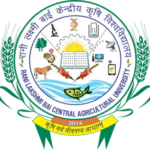Biotechnology And Crop Improvement
Biotechnology and crop improvement represent a cutting-edge approach to enhancing agricultural productivity and sustainability. Biotechnology involves the application of scientific techniques, such as genetic engineering, molecular markers, and tissue culture, to modify and improve crops. Through these methods, scientists can introduce desirable traits into plants, such as resistance to pests, diseases, or environmental stresses, and improve overall crop yield and quality. Genetic modification allows for precise alterations in a plant’s DNA, enabling the development of crops that can thrive in challenging conditions and meet the demands of a growing global population.
Crop improvement through biotechnology not only focuses on increasing yield and resilience but also on enhancing nutritional content and reducing the environmental footprint of agriculture. For example, biofortification aims to increase the levels of essential nutrients in staple crops, addressing deficiencies in human diets and improving public health. Additionally, advances in biotechnology can lead to the development of crops that require fewer inputs such as water and fertilizers, contributing to more sustainable farming practices. By leveraging these innovative technologies, biotechnology and crop improvement offer significant potential to address global food security challenges and promote sustainable agricultural development.
Department of Biotechnology & Crop Improvement
- Profile
- Samarth Profile
- Google Scholar
Dr. Ashutosh Singh

Page last updated on November 2nd, 2024 at 01:10 pm







